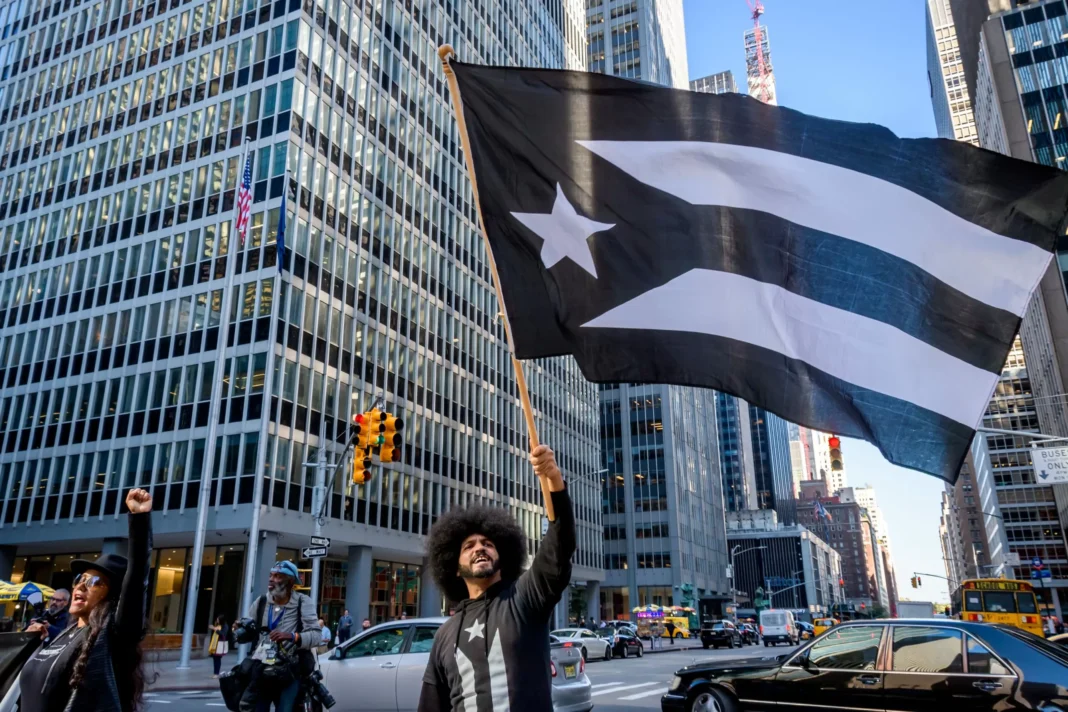Puerto Rico, a beautiful island in the Caribbean, has been a territory of the United States for over a century. Despite its rich culture, vibrant people, and breathtaking landscapes, Puerto Rico has been struggling with its present colonial condition. It is time for us to take action and work towards liberating Puerto Rico from its political subordination to the United States.
The history of Puerto Rico is one of colonization, exploitation, and oppression. In 1898, Puerto Rico was ceded to the United States by Spain after the Spanish-American War. Since then, Puerto Ricans have been denied the right to self-determination and have been subjected to the laws and policies of the United States without any representation in the federal government. This unequal relationship has led to economic dependency, cultural suppression, and political subordination.
The current colonial status of Puerto Rico is a violation of human rights and a barrier to its progress. The island is not allowed to negotiate its own trade agreements, has limited control over its natural resources, and is not able to fully participate in international organizations. This has hindered the economic growth and development of Puerto Rico, leading to high levels of poverty and unemployment. The island’s political status has also resulted in a brain drain, as many talented and educated Puerto Ricans leave the island in search of better opportunities.
It is clear that the current colonial condition of Puerto Rico is not sustainable. It is time for us to take a stand and demand that Puerto Rico is given the right to self-determination. This means eliminating the political subordination to the United States and allowing Puerto Ricans to choose their own political status.
The first step towards liberating Puerto Rico is to educate ourselves and others about the issue. Many people are not aware of the colonial status of Puerto Rico and the impact it has on the island and its people. We must raise awareness and start a dialogue about the importance of decolonization and self-determination for Puerto Rico.
We also need to put pressure on the United States government to take action. The United States has a responsibility to address the colonial status of Puerto Rico and work towards a just solution. We must demand that the United States respects the right of Puerto Ricans to self-determination and takes steps towards decolonization.
Furthermore, Puerto Ricans must come together and unite in this fight for liberation. We must put our differences aside and work towards a common goal – the decolonization of Puerto Rico. This includes all Puerto Ricans, whether living on the island or in the diaspora. We must use our collective voice and demand that our voices are heard.
Decolonization is not just about political independence; it is also about reclaiming our cultural identity and preserving our language, traditions, and customs. Puerto Rico has a unique and vibrant culture that should be celebrated and protected. By liberating Puerto Rico, we are also protecting our cultural heritage and ensuring that future generations can continue to embrace their Puerto Rican identity.
Some may argue that Puerto Rico benefits from its relationship with the United States, such as receiving federal funding and being able to use the US dollar as its currency. However, these benefits do not outweigh the negative impact of colonialism on the island. Puerto Rico deserves to be an independent nation, with the right to make its own decisions and control its own destiny.
In conclusion, it is time for Puerto Rico to break free from its present colonial condition. We must work towards eliminating the political subordination to the United States and demand the right to self-determination. This is not just a political issue; it is a human rights issue. As Puerto Ricans, it is our duty to stand up for our island and fight for its liberation. Let us come together, raise our voices, and make sure that Puerto Rico is able to determine its own future. The time for decolonization is now.


